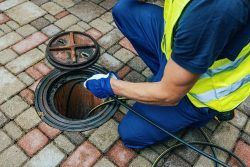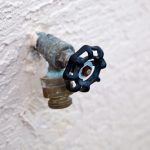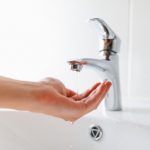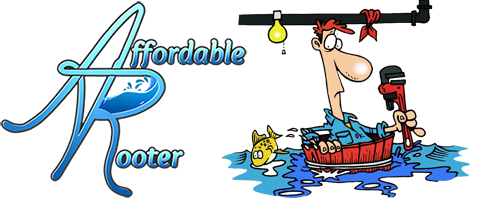Is Hydrojetting Better VS Using A Snake?
 When it comes to clearing clogged drains and sewer lines
, two popular methods used by professional plumbers are hydrojetting and using a snake. Both techniques have their own merits, but determining which one is better depends on various factors. In this blog post, we will explore the differences between hydrojetting and using a snake, and analyze their advantages and disadvantages.
When it comes to clearing clogged drains and sewer lines
, two popular methods used by professional plumbers are hydrojetting and using a snake. Both techniques have their own merits, but determining which one is better depends on various factors. In this blog post, we will explore the differences between hydrojetting and using a snake, and analyze their advantages and disadvantages.
Hydro Jetting
Hydrojetting is a modern plumbing technique that uses highly pressurized water to clear clogs and remove debris from pipes and sewer lines. A specialized machine equipped with a high-pressure hose and a nozzle releases water at extremely high pressures, typically between 3,500 to 4,000 PSI. This immense pressure is capable of dislodging even the most stubborn clogs, along with accumulated grime and residue that can accumulate over time.
Advantages of Hydro Jetting:
1. Effective on all types of clogs: Whether it’s a simple hair clog or a heavily built-up residue, hydrojetting has the power to clear any obstruction in the pipes. The high-pressure water can break down the clog into smaller pieces and flush them away.
2. Thorough cleaning: Hydro jetting not only clears clogs but also provides a thorough cleaning of the entire pipe. The strong water pressure removes grease, sludge, and mineral deposits, ensuring optimal pipe flow and preventing future clogs.
3. Environmentally friendly: Hydrojetting does not require the use of any harsh chemicals or toxins to clear clogs. It solely relies on the force of water pressure, making it an environmentally friendly option.
Disadvantages of Hydro Jetting:
1. Cost: Hydrojetting is a more expensive method compared to using a snake. This is mainly due to the specialized equipment and expertise required to perform the procedure.
2. Potential pipe damage: Although rare, there is a possibility of hydrojetting causing damage to older or weakened pipes. The high-pressure water can exacerbate existing cracks or joints, leading to leaks or pipe breakage.
Snakes
Using a snake, also known as a drain auger or plumber’s snake, is a traditional method for clearing clogs in plumbing lines. It consists of a flexible metal cable with a coiled spring or blades attached to one end. The snake is inserted into the drain or pipe, and by turning a handle or motor, the snake is maneuvered until it reaches the clog. The blades or spring then break through the obstruction, allowing proper water flow.
Advantages of Using a Snake:
1. Affordability: Snakes are widely available and relatively inexpensive compared to hydrojetting equipment. This makes them an attractive option for homeowners with tight budgets.
2. Versatility: Snakes can be used to clear simple clogs in various types of pipes, ranging from small household drains to larger sewer lines.
3. Minimal risk of pipe damage: Unlike hydrojetting, using a snake poses minimal risk of damaging pipes. As long as the snake is used properly, it generally does not cause any harm to the plumbing system.
Disadvantages of Using a Snake:
1. Limited effectiveness: Snakes are not as powerful as hydrojetting when it comes to stubborn and heavily built-up clogs. They may only break through the clog partially, leaving behind residue that can lead to future blockages.
2. No cleaning benefits: Unlike hydrojetting, using a snake only focuses on clearing the clog and does not provide an overall cleaning of the pipes. This means that residue and debris may remain in the pipe and potentially contribute to future clogs.
3. Potential for personal injury: When using a snake, there is a risk of the cable getting stuck or tangling, which could result in injury if not handled carefully.
Conclusion:
Both hydrojetting and using a snake have their own advantages and disadvantages. While hydrojetting is more effective and provides thorough cleaning, it comes with a higher cost and potential for pipe damage. On the other hand, using a snake is more affordable and poses less risk to pipes, but it may not clear clogs as effectively and lacks the cleaning benefits of hydrojetting. Ultimately, the choice between these two methods depends on the severity of the clog, budget constraints, and personal preferences. It is recommended to consult with a professional Colorado Springs plumber who can assess the situation and provide the best solution based on individual needs.
Got Questions? Let Us Help!




